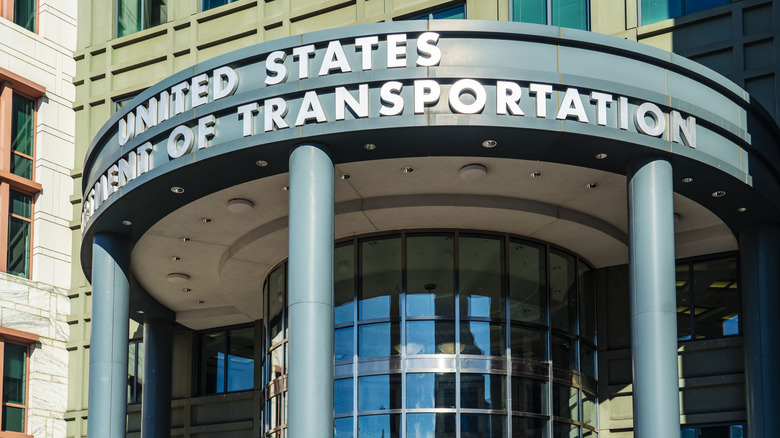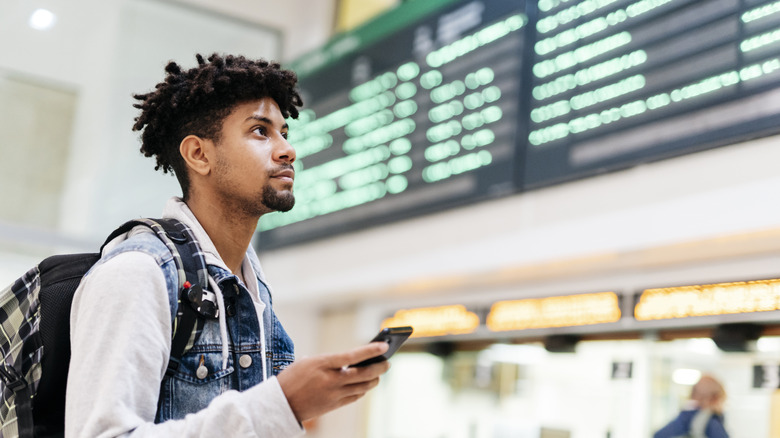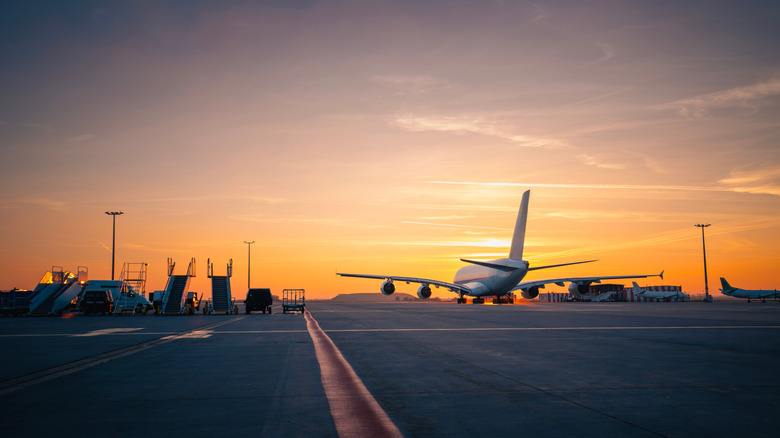America's Biggest Airlines Are Joining Forces To Make Flying Worse
The biggest airlines in the U.S. have to come together to demand that some of the most basic protections for travelers be taken away, meaning your travel experience might get a lot worse in the future. Airlines for America, the industry's biggest lobbying group, sent a 93-page letter to the Department of Transportation (DOT) asking it to get rid of rules that guarantee automatic refunds, clear fare listings, and family seating.
If the rollback goes through, airlines wouldn't have to automatically give people their money back if a flight is canceled or delayed for lengthy time periods. Instead, travelers might have to chase after vouchers that are about to run out. The rules that stipulate fares have to show taxes and fees up front could also dissolve, making it possible for bait-and-switch pricing to happen again. And the small promise that parents can sit next to their kids without having to pay extra? That might be out the window, too.
The DOT, which is now run by former airline lobbyist Sean Duffy, has already begun implementing Trump's deregulation plans and gotten rid of a rule from the Biden administration that would have paid passengers up to $775 for long delays. For businesspeople and celebrities who have ultra-expensive private jets, this is no concern, but the protections that are left for regular passengers are shaky at best, with the potential of getting even shakier.
The implications of deregulation
The carriers say that deregulation will cut down on red tape and make service better. But history shows the opposite: when airlines have more "freedom," it usually means higher fees for passengers. Last year, U.S. airlines made more than $6 billion in profits. Up to 15% of that came from extra fees for things like checked bags and early boarding. It would be easier to hide those costs until the last checkout screen if there were no rules about transparency, so you could say goodbye to finding cheap flights online.
Critics say that the comparison with Europe highlights everything wrong with this proposal. In the EU, airlines have to pay for long delays and cancellations, as well as be transparent about the prices up front. Europe's airline market is still very competitive, and budget airlines are doing well, despite those rules. Stronger rules have even been linked to fewer delays overall, since airlines lose money when they leave customers stranded. In the U.S., though, passengers don't have the same luxury. When they miss a connection or have to wait overnight, often the only response is a shrug from the gate agent.
If the airlines get their way, things could go back to the days when there were endless add-ons and requests for refunds that were ignored. Christopher Migliaccio, a lawyer for consumers, told USA Today that getting rid of these rules means, "consumers will face many more surprise charges ... and less protection against refundable purchases."
What travelers really have at stake
The biggest risk isn't just losing money or family seating. It's the example. If airlines can get rid of consumer protections whenever they want, future protections might not even be put into place. Airlines for America has already asked the DOT to stop publishing monthly performance stats that show travelers which airlines cancel or delay the most. Passengers have to find their way through a market that is completely stacked against them without any rules or data.
The timing makes the push even more annoying. The federal government gave airlines more than $50 billion in bailouts during the pandemic to keep them going. Now, the very same businesses are revoking their responsibilities to the people who kept them afloat during that time. People are fully aware that the rollback won't make service any better; it will just give airlines more ways to make money off of disgruntled customers.
The DOT has said it will follow the law, but Congress is the one who really has the power. If lawmakers support airlines in the name of deregulation, U.S. passengers may soon have to pay more for less than ever before. Even budget airlines that can price their tickets much lower would most likely follow suit. And since travel demand is expected to rise, the question isn't whether airlines will get some of what they want, but how much they can get before the public forces them to change course.


